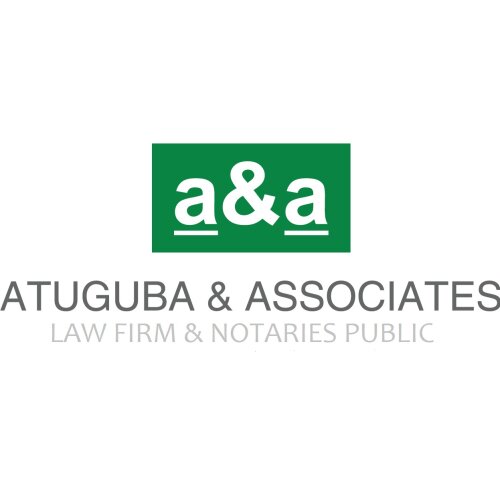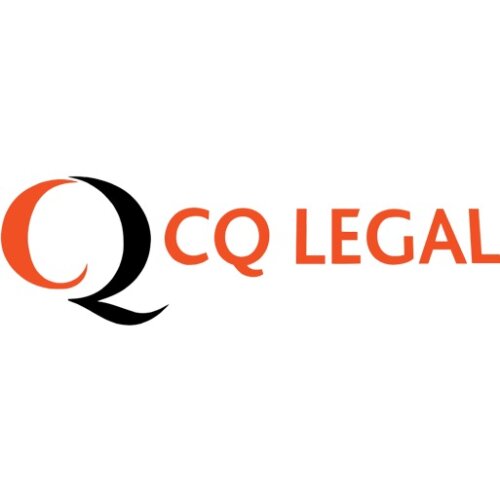Best Equity Capital Markets Lawyers in Ghana
Share your needs with us, get contacted by law firms.
Free. Takes 2 min.
Or refine your search by selecting a city:
List of the best lawyers in Ghana
About Equity Capital Markets Law in Ghana
Equity Capital Markets (ECM) play a vital role in Ghana's financial landscape, providing avenues for companies to raise capital by issuing shares to investors. The Ghana Stock Exchange (GSE), established in 1990, is the primary platform for public companies to list their shares, providing opportunities for both businesses seeking to expand and individuals or institutions wanting to invest. The legal framework governing ECM in Ghana ensures transparency, investor protection, and fair dealing in the issuance and trading of shares and other equity instruments. This framework is shaped by a combination of national laws, regulations from the Securities and Exchange Commission (SEC), and GSE rules.
Why You May Need a Lawyer
Engaging in equity capital markets involves complex transactions and regulatory compliance. You may need a lawyer in several situations, including:
- Advising on the process for listing a company on the Ghana Stock Exchange
- Drafting and reviewing prospectuses and information memoranda
- Navigating regulatory filings and approvals with the SEC
- Conducting due diligence before purchasing or selling shares
- Structuring equity offerings, such as Initial Public Offerings (IPOs) and private placements
- Advising on mergers, acquisitions, or takeovers involving listed equities
- Dealing with insider trading or market manipulation allegations
- Ensuring compliance with ongoing disclosure obligations
- Resolving disputes related to shareholder rights and corporate governance
- Seeking guidance about foreign investor participation and cross-border listings
Local Laws Overview
The main statutes and regulations concerning equity capital markets in Ghana include:
- Companies Act, 2019 (Act 992) - Governs the incorporation, operation, and management of companies in Ghana. It stipulates requirements for share offerings and the rights of shareholders.
- Securities Industry Act, 2016 (Act 929) - Regulates securities markets, including the public offering and trading of shares, and grants the Securities and Exchange Commission oversight powers.
- Securities and Exchange Commission (SEC) Regulations - Provide detailed guidelines on listings, prospectus requirements, disclosures, and market conduct.
- Ghana Stock Exchange Rules - Set out procedures and requirements for listing, trading, and delisting of equities, as well as ongoing compliance for listed companies and market participants.
- Anti-Money Laundering Laws - Require disclosure of beneficial ownership and monitoring of financial transactions to prevent unlawful activities within the markets.
It is crucial to adhere to these legal requirements to ensure the success of equity transactions and avoid penalties or legal disputes.
Frequently Asked Questions
What is Equity Capital Markets?
Equity Capital Markets refer to the financial markets where companies raise funds by issuing shares or other equity instruments to investors.
Who regulates equity capital markets in Ghana?
The Securities and Exchange Commission is the primary regulator, with the Ghana Stock Exchange playing a significant role in enforcing market rules for listed companies.
How can a company list its shares on the Ghana Stock Exchange?
Companies must meet specific listing requirements, prepare a prospectus, seek SEC approval, and comply with GSE application procedures. Legal guidance is highly recommended throughout the process.
What is an Initial Public Offering (IPO)?
An IPO is the first sale of a company's shares to the public, often marking its debut on the stock exchange.
Are there restrictions on foreign participation in Ghana's equity capital markets?
Foreign investors can participate in Ghana's equity markets, but there are regulatory requirements, including the registration of investments and compliance with anti-money laundering rules.
What protections do shareholders have under Ghanaian law?
Shareholder rights are safeguarded under the Companies Act and GSE rules, including voting rights, access to company information, and the right to dividends.
What types of information must companies disclose to investors?
Companies are required to make full disclosures in prospectuses before share offerings and provide ongoing updates about financial performance and material developments.
Can disputes between shareholders and companies be resolved through the courts?
Yes, disputes may be taken to court, and in certain circumstances, alternative dispute resolution methods such as arbitration or mediation may also be used.
What are the consequences of failing to comply with equity capital markets laws?
Non-compliance can lead to fines, suspension or delisting of shares, criminal liability, and reputational damage to companies and their officers.
Why should I use a lawyer for equity capital market transactions?
Lawyers provide essential advice on compliance, draft and review important documents, negotiate with regulators, and mitigate potential risks that could affect your investment or business.
Additional Resources
Consider consulting the following authorities and organizations for more information and support:
- Securities and Exchange Commission (SEC) Ghana
- Ghana Stock Exchange (GSE)
- Registrar of Companies
- Bank of Ghana (for regulatory aspects relating to cross-border investment and currency controls)
- Ghana Investment Promotion Centre
- Ghana Bar Association - for finding qualified legal professionals
Next Steps
If you need legal assistance regarding equity capital markets in Ghana, consider the following steps:
- Clearly identify your objectives, whether they relate to investing, raising capital, or resolving a dispute
- Gather all relevant documents, such as company records and past correspondence with regulators
- Contact a lawyer specialized in capital markets or corporate law
- Request an initial consultation to discuss your needs and understand the potential legal pathways
- Follow your lawyer's guidance on meeting regulatory requirements, timelines, and documentation
- Keep up to date with regulatory changes in the equity capital market space to ensure ongoing compliance and protection of your interests
Navigating equity capital markets can be complex, but the right legal advice will help you achieve your business or investment goals efficiently and securely.
Lawzana helps you find the best lawyers and law firms in Ghana through a curated and pre-screened list of qualified legal professionals. Our platform offers rankings and detailed profiles of attorneys and law firms, allowing you to compare based on practice areas, including Equity Capital Markets, experience, and client feedback.
Each profile includes a description of the firm's areas of practice, client reviews, team members and partners, year of establishment, spoken languages, office locations, contact information, social media presence, and any published articles or resources. Most firms on our platform speak English and are experienced in both local and international legal matters.
Get a quote from top-rated law firms in Ghana — quickly, securely, and without unnecessary hassle.
Disclaimer:
The information provided on this page is for general informational purposes only and does not constitute legal advice. While we strive to ensure the accuracy and relevance of the content, legal information may change over time, and interpretations of the law can vary. You should always consult with a qualified legal professional for advice specific to your situation.
We disclaim all liability for actions taken or not taken based on the content of this page. If you believe any information is incorrect or outdated, please contact us, and we will review and update it where appropriate.
Browse equity capital markets law firms by city in Ghana
Refine your search by selecting a city.

















